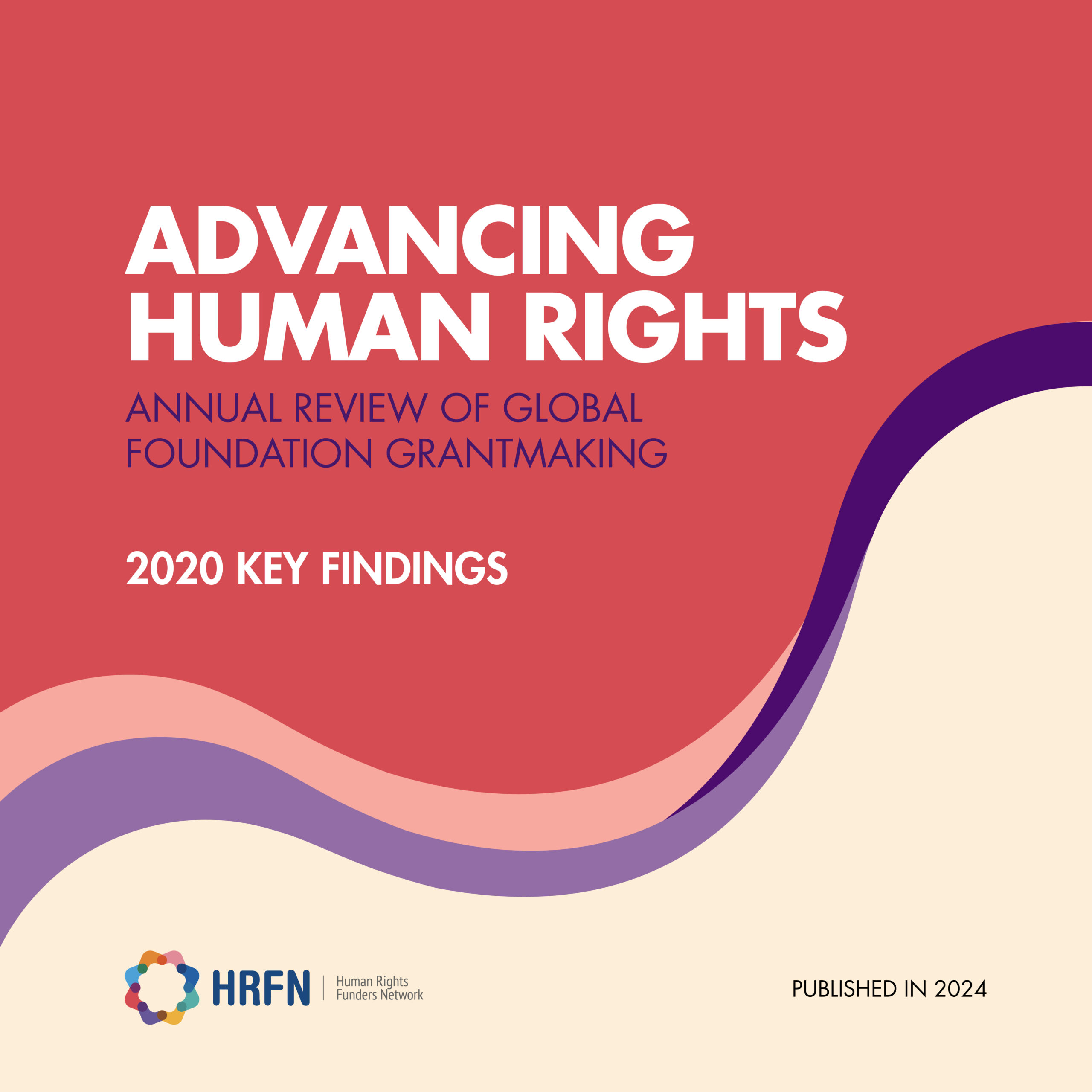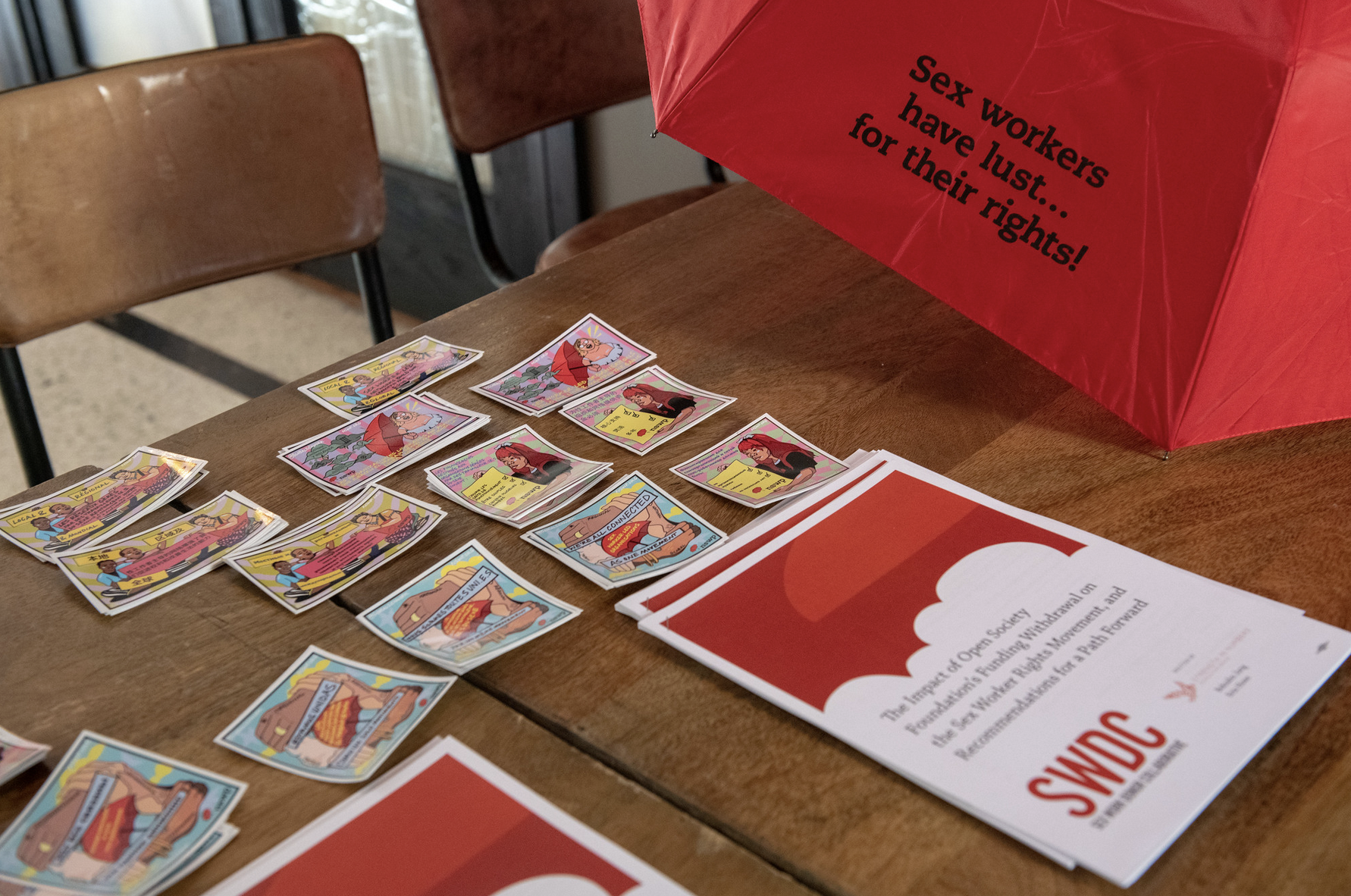The Importance of Evidence: How funders and advocates are leveraging our Advancing Human Rights research
By Rachel Thomas, HRFN director of research initiatives
Data matters. It adds scale to stories and weight to advocacy. At its best, data helps us understand how our individual realities fit within a shared experience.
For human rights organizations and movements, HRFN and Candid’s joint Advancing Human Rights research contextualizes foundation funding, showing that grant dollars to protect and promote human rights are a drop in the bucket compared to what is needed, and a fraction of what is possible.
Our latest report, released in July, tracked $3.7 billion in grants to support human rights work in 2018. The detailed analysis has generated buzz amongst partners and in the media and led to a number of articles on the implications for human rights and philanthropy today. Watching people bring our research to life reflects exactly why we do this work: to support funders and equip activists to transform philanthropy so that it lives up to its potential. Read on for a sampling.
Philanthropy’s role in the COVID-19 response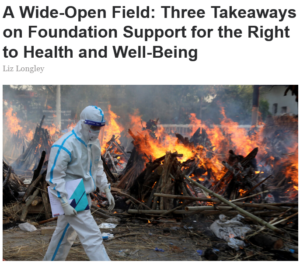
In her piece, “A Wide-Open Field: Three Takeaways on Foundation Support for the Right to Health and Well-Being,” Liz Longley of Inside Philanthropy pointed to the limited foundation support for health and well-being rights that we reported, and the implications of these funding shortfalls in the wake of the coronavirus pandemic, especially for people of color and other marginalized groups. She writes:
“Fault lines along race, geography, and other factors were already driving stark inequalities before the added stressors of COVID. Now, even people in high-income countries are lining up at food pantries, while nations like Venezuela and South Africa struggle to vaccinate even 10% of their populations.”
She ends on a hopeful note about the future of foundation support for health rights:
“If philanthropy hopes to open the taps on what has so far been a trickle of support, there is substantial opportunity to engage.”
We agree there is considerable potential: less than 1% of the $8 billion U.S. foundations allocate annually for health initiatives addresses the health and well-being rights of racial and ethnic groups.
Regional disparities in access to funding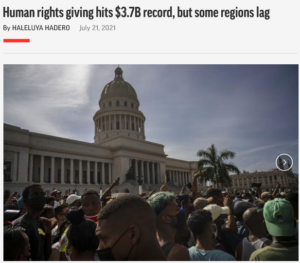
Haleluya Hadero of the Associated Press explored our well-documented“trust gap,” including our finding that the majority of the grant dollars meant to benefit regions like the Middle East and North Africa, Sub-Saharan Africa, and the Caribbean are awarded to recipients based outside of those regions.
She shared these findings with Degan Ali, the executive director of Adeso in Kenya, and quoted Degan’s powerful reaction:
“How would Americans feel if a bunch of Ghanian NGOs came to California responding to the wildfires, and they ignored the American Red Cross… Ignored all the organizations domestically in California? …They would feel angry. And, they would not accept it. That’s exactly what happens to us every single day.”
We echo Degan’s dismay and hope that bringing attention to these concerns will mean more grant dollars reach local communities directly in the future.
Decreased funding for disability rights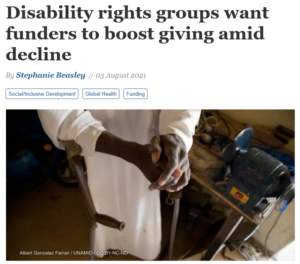
Stephanie Beasley of Devex emphasized the decline in funding for disability rights that we identified, at a time when the coronavirus pandemic and climate change are disproportionately affecting people with disabilities in many countries. She quoted Emily Harris, director of the Presidents’ Council for Disability Inclusion in Philanthropy, who said:
“[Grant dollars for people with disabilities were] terribly low to begin with, and seeing them drop at a time when inequality and the disability population is increasing due to COVID-19 is devastating.”
Our data provide a baseline so that we can evaluate progress. Indeed, this year, more than 40 foundations signed the disability inclusion pledge developed by the President’s Council, and it includes a commitment to be more inclusive of people with disabilities in grantmaking. Will this translate into more grant dollars globally for disability rights? We hope so – and will follow the money.
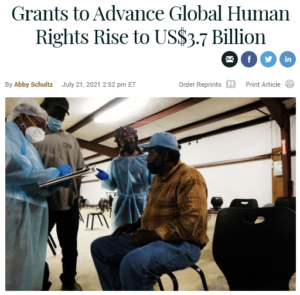 Reaching new audiences
Reaching new audiences
We are heartened – and sometimes surprised – to see the far reach of our research in the news. The Associated Press article was syndicated in over 200 media outlets in nine countries, from U.S. News & World Report to Breitbart News to the Jamaica Observer. Barron’s showcased the piece “Grants to Advance Global Human Rights Rise to US$3.7 Billion,” by Abby Schultz, highlighting many of our key findings.
We encourage you to consider ways the Advancing Human Rights research can inform your grantmaking or support your advocacy. We are here with the data and would love to be a resource for you. Please check out our findings and reach out to us at AHR@hrfn.org.
—
The Advancing Human Rights research is a collaboration of HRFN and Candid, in partnership with Ariadne and Prospera. To learn more, visit our research hub at humanrightsfunding.org.
